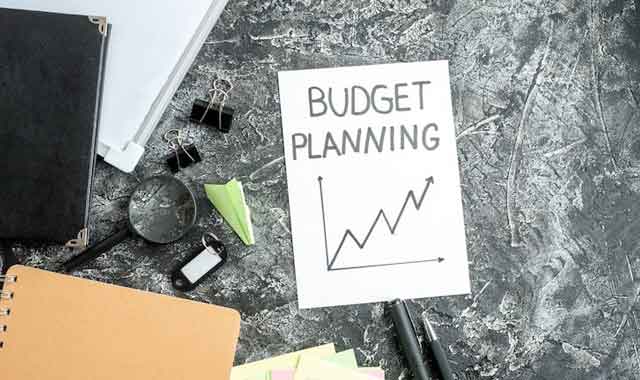If you have recently received a windfall, here are a few things you should do. First, invest the money in passive index funds and visualize your long-term financial dream. Second, find an Investment Advisor. Decide when you want to spend the money in the third place. Finally, plan how you’ll spend it. Below are some steps you should take to manage your financial windfall. If you’ve just received a windfall, you may want to consider hiring an Investment Advisor.

How to Manage a Financial Windfall – 5 Expert Tips
Envision a Long-Term Financial Dream
If you receive a large amount of money as a result of a lawsuit, inheritance, sale of property, or winning a lottery, you should immediately start envisioning how you would use the money. Financial windfalls can range from a few thousand dollars to millions. It is important to think long-term to ensure that you can make the most of your newfound wealth. It is also wise to invest a portion of the money in passive index funds.
To manage a financial windfall, you must first take stock of your new reality. Your new reality will be directly related to the size of the windfall. You should learn to say no to temptations that arise with a sudden influx of money. If you become overly dependent on your new wealth, you may find yourself spending more money than you can afford. This is a major challenge for those who are not financially prepared to handle the sudden change.
Decide When you Want to Spend the Money
Once you have a financial windfall, it’s time to plan how you will use it. Identify your priorities and decide what you want to do with the money. Do you wish to travel or study in another country? You might want to take a sabbatical to write a book or dive the Great Barrier Reef. You may want to take your kids to the Grand Canyon. Whatever you decide, spend it wisely.
When you receive windfall money, don’t forget to treat yourself! Make sure to set aside some money for sensible spending. You may need to buy a new home or a car, but your priorities need to come first. Remember that 70 percent of people who receive financial windfalls don’t keep it for more than a few years. You’ll have to use your head to make the best decisions.
When you receive sudden wealth, you can spend it on a new home or upgrade your lifestyle. Windfalls help you clear debt or reduce it. Spend wisely and reflect on past decisions. If you’ve spent it recklessly, you’ll soon find yourself with an unplanned debt problem. You might also want to spend the money on something you’ve always wanted. If you have a windfall of $5 million, it would be best to spend it on a new home or upgrade your lifestyle. However, if you are withdrawing $500k a year from a retirement account, the money would be gone in eight years. If you’re not a risk-taker, you might want to invest the rest of your money in something that has a better chance of producing a higher return.
Find an Investment Advisor
How to find an investment advisor to manage if you’ve just received a financial windfall? If your windfall is substantial enough to require an investment advisor, a thorough interview is a must. Ask questions about experience and training, fees, and conflicts of interest. Make sure to carefully scrutinize their qualifications before hiring them. An investment advisor should work solely in your best interests. After all, they’re going to be looking out for your best interests.
You can’t afford to invest everything you get in one place. You might also need to consult a tax advisor to determine how much of your windfall you should invest. Tax issues can be complex, especially if you’ve received a windfall through inheritance, lottery winnings, or exercise of stock options. Many tax professionals will provide free consultations, but they’re more interested in selling you investment products than working with you.
While you’re still in the process of planning for a financial windfall, a fee-only advisor is an excellent choice. An investment advisor can guide you in making sound decisions and helping you achieve your goals. An investment advisor is trained to work with clients who’ve experienced a financial windfall. They will spend time with you to determine your priorities and values and work out a plan that meets those needs. You need someone who can guide you through the emotional rollercoaster of a financial windfall.
Reduce Your Debt
As a financial windfall presents itself, it can be difficult to determine where to begin. However, it is important to evaluate your overall debt situation and start by paying off the highest interest rate debts first. To determine this, list all your debts in order of highest interest rate to lowest interest rate and start at the top. A financial windfall can provide a windfall for many people. It can be used for several purposes, such as a vacation or an expensive purchase.
First, determine what your short and long-term financial goals are. Are you looking to pay off a large debt that may not be manageable until you have more money to spend? Is it to pay for your child’s college education? If you are able to pay off some of your debts, you will improve your cash flow and eliminate the required monthly payments. This is especially important if you received a lump sum of money.
Secondly, you should pay off any outstanding debt as soon as possible. It’s important to remember that paying interest on debts is money you’re giving away without any benefit. While some debts (such as credit cards) may be advantageous to pay off in full, others may not be. For example, some interest on student loans and mortgages can be deducted from your taxes, so you can potentially get a better return by keeping them.
Invest for Retirement
While the amount of a financial windfall can seem overwhelming, it is possible to invest for retirement to take advantage of it. While many people choose to invest in their 401(k) plan, you can also use a financial windfall to augment your retirement nest egg. For instance, you can contribute to your employer’s retirement plan or open a retirement savings account. However, the IRS allows a maximum contribution to be made to these accounts each year, which means that a single windfall can generate multiple years of compound interest.
Whether you want to spend your windfall immediately or put it into a retirement account, investing can help you extend the benefits of your windfall for decades to come. The type of investments you choose will depend on how much money you have, your risk tolerance, and your desired outcome. Some options for investing include stocks and bonds, real estate, or starting a small business. Investing in real estate is a good idea, as it allows you to get immediate returns on your investment.
You can use the windfall to pay off existing debts and improve your cash flow. However, if you have a high interest rate, it may be wise to pay off these balances first. Paying off debts will free up your cash flow and prevent you from incurring additional debt, which can be detrimental. Besides improving your cash flow, paying off debts will also improve your credit score, which is especially valuable if you have a financial windfall.


